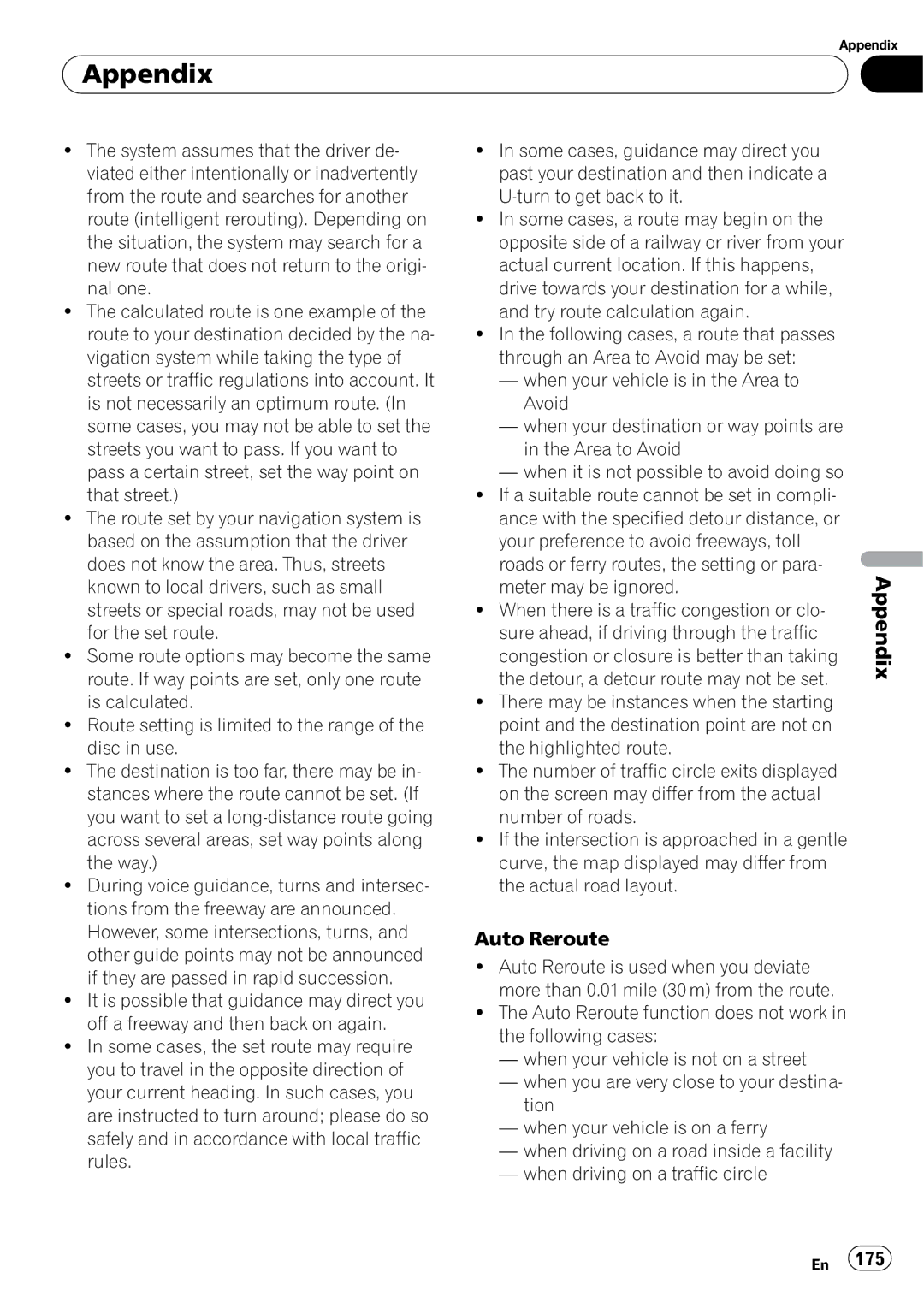
Appendix
 Appendix
Appendix
!The system assumes that the driver de- viated either intentionally or inadvertently from the route and searches for another route (intelligent rerouting). Depending on the situation, the system may search for a new route that does not return to the origi- nal one.
!The calculated route is one example of the route to your destination decided by the na- vigation system while taking the type of streets or traffic regulations into account. It is not necessarily an optimum route. (In some cases, you may not be able to set the streets you want to pass. If you want to pass a certain street, set the way point on that street.)
!The route set by your navigation system is based on the assumption that the driver does not know the area. Thus, streets known to local drivers, such as small streets or special roads, may not be used for the set route.
!Some route options may become the same route. If way points are set, only one route is calculated.
!Route setting is limited to the range of the disc in use.
!The destination is too far, there may be in- stances where the route cannot be set. (If you want to set a
!During voice guidance, turns and intersec- tions from the freeway are announced. However, some intersections, turns, and other guide points may not be announced if they are passed in rapid succession.
!It is possible that guidance may direct you off a freeway and then back on again.
!In some cases, the set route may require you to travel in the opposite direction of your current heading. In such cases, you are instructed to turn around; please do so safely and in accordance with local traffic rules.
!In some cases, guidance may direct you past your destination and then indicate a
!In some cases, a route may begin on the opposite side of a railway or river from your actual current location. If this happens, drive towards your destination for a while, and try route calculation again.
!In the following cases, a route that passes through an Area to Avoid may be set:
—when your vehicle is in the Area to Avoid
—when your destination or way points are in the Area to Avoid
—when it is not possible to avoid doing so
!If a suitable route cannot be set in compli- ance with the specified detour distance, or your preference to avoid freeways, toll roads or ferry routes, the setting or para- meter may be ignored.
!When there is a traffic congestion or clo- sure ahead, if driving through the traffic congestion or closure is better than taking the detour, a detour route may not be set.
!There may be instances when the starting point and the destination point are not on the highlighted route.
!The number of traffic circle exits displayed on the screen may differ from the actual number of roads.
!If the intersection is approached in a gentle curve, the map displayed may differ from the actual road layout.
Auto Reroute
!Auto Reroute is used when you deviate more than 0.01 mile (30 m) from the route.
!The Auto Reroute function does not work in the following cases:
—when your vehicle is not on a street
—when you are very close to your destina- tion
—when your vehicle is on a ferry
—when driving on a road inside a facility
—when driving on a traffic circle
Appendix
En 175
